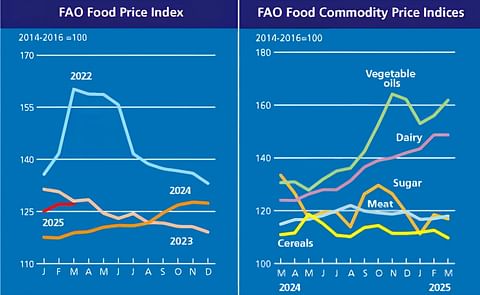Winter cover crop research yields positive results for environment
Winter cover crop research yields positive results for environment

In humid climates, there is a high risk of topsoil loss from erosion on bare soil as well as nitrogen from fertilizers leaking or leaching from the soil into water sources, which can cause groundwater pollution.
This is especially true in the fall, after potato harvest, and in the spring, due to melting snow.
Planting cover crops is gaining momentum in potato-growing regions across Canada due to their ability to reduce soil erosion. Agriculture and Agri-Food Canada (AAFC) scientist, Dr. Judith Nyiraneza, has discovered that winter cover crop varieties planted post-harvest prove to be beneficial to the environment and to soil quality.
In Prince Edward Island (PEI), for example, approximately 40 percent of farmers’ fields had cover crops planted after harvesting potatoes according to a 2019 survey by the PEI Potato Board.
Potato fields harvested in the late summer and early fall are prime candidates to be seeded with cover crops. In PEI, fields harvested before mid-October typically have enough time to establish a good green cover before winter.
Dr. Nyiraneza and Oyster Cove Farms of Hamilton, PEI, completed a two-year study that tested the performance of winter rye, winter wheat, and spring barley as winter cover crops planted following the harvest of potatoes.

Splash pans (pictured) collect soil displaced during rain events.
Dr. Nyiraneza used splash pans in cover crop fields to measure soil movement caused by raindrops, the soil’s vulnerability to being transported through erosion, and the amount of carbon and nitrogen in it. Nitrates in the soil were measured at different times throughout the fall, spring, and summer.
Dr. Judith Nyiraneza, Research Scientist, Agriculture, and Agri-Food Canada:
“All three winter cover crops – winter rye, winter wheat, and spring barley – showed substantial promise.”
“They decreased the risk of soil erosion and reduced the amount of carbon and nitrogen that would be lost in soil, compared with no winter cover control. In fact, winter rye was found to perform the best.”
Not only does winter rye and wheat recover quickly in early spring, but it can also provide additional protection during snowmelt when the risk of soil erosion is very high. Plus, farmers can also harvest it as a second cash crop. If harvested, winter wheat yield ranged from 4.5 to 7.6 tons per hectare and winter rye ranged from 3.2 to 5.1 tons per hectare.
Dr. Nyiraneza is continuing this cover crop research as part of Living Lab – Atlantic and in partnership with other AAFC scientists (Dr. Aaron Mills and Dr. Andrew McKenzie-Gopsill) and Ryan Barrett, research and agronomy specialist at the PEI Potato Board.
Ryan is conducting trials in commercial farm fields with cover crops both following potato harvest, to complement Dr. Nyiraneza’s research, as well as in the summer/fall of the fall preceding potato planting.
Ryan Barrett, research and agronomy specialist at the PEI Potato Board:
“We are working with farmers to assess the success of different cover crop species, different seeding rates, and different dates of establishment.”
“This way, we can help provide farmers with the best agronomic advice that makes both economic senses as well as increasing environmental sustainability. This past year, we even had some participating farms plant winter barley, which is new to PEI.”
At the end of the day it looks like keeping the ground covered as much as possible, minimizing the time the soil is left bare – after potato harvest or ahead of potato planting – is a win for the environment and farmers' pocketbooks.
Key Discoveries/Benefits
An AAFC scientist working with a PEI potato producer recently completed a two-year study that tested the performance of winter rye, winter wheat, and spring barley as winter cover crops planted following the harvest of potatoes.
- All three winter cover crops tested decreased the risk of soil erosion and reduced the amount of carbon and nitrogen that would be lost in soil, compared with no winter cover control.
- Winter rye and wheat recover quickly in early spring to provide additional protection during snowmelt when the risk of soil erosion is very high. Farmers can also harvest it as a second cash crop.
- Dr. Nyiraneza is continuing this cover crop research as part of Living Lab – Atlantic and in partnership with other AAFC scientists (Dr. Aaron Mills and Dr. Andrew McKenzie-Gopsill) and Ryan Barrett, research and agronomy specialist at the PEI Potato Board.”










